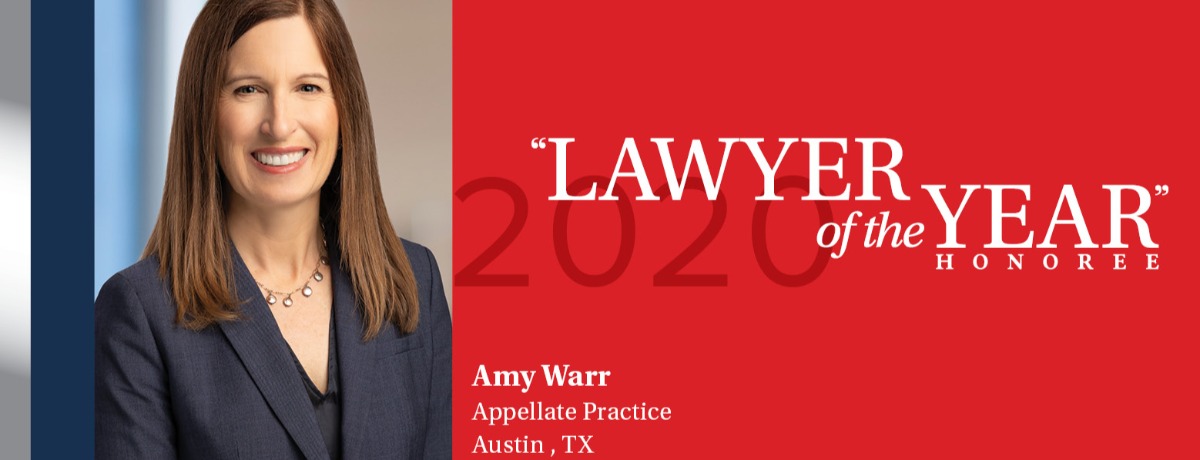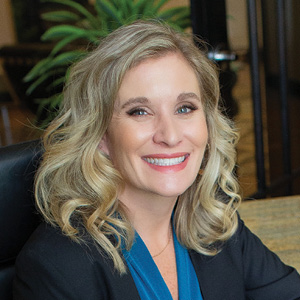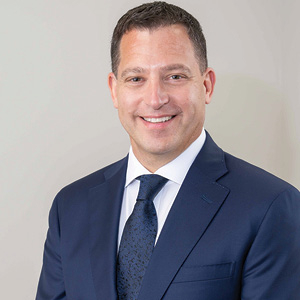Variety. That’s the word that best describes the cases on which Amy Warr, Austin’s 2020 “Lawyer of the Year” for Appellate Practice, works. After five years as an assistant solicitor general for the State of Texas, Warr began working for Alexander Dubose & Jefferson in 2007.
She handles appeals in a multitude of areas including trade secrets, eminent domain, personal injury, and governmental immunity. Warr has worked on many prominent cases with mandamus actions, one of which was the largest child-protection case in United States history: In 2008, the State of Texas removed more than 400 children from the Yearning for Zion ranch in West Texas. Partnering with the nonprofit Texas RioGrande Legal Aid, Warr represented 30 mothers and won the return of their children.
“We work on virtually every type of civil case,” she says, “so I never get bored.”
In addition to its variety, Warr says she finds two things most rewarding about her field of law: “The intellectual challenge—we’re always thinking not only about what the law is, but what it should be. And the collegiality. The appellate bar is small and extremely professional, and I have the most skilled and generous colleagues imaginable.”
Naturally, there are aspects of her practice that Warr finds challenging, too. “We must continually deal with areas of the law that are unfamiliar to us,” she explains. “Fortunately, the trial lawyers we work with are usually experts in a particular field and can provide invaluable guidance.”
Which accomplishments contributed to Warr’s receiving the highest rating from her peers and winning “Lawyer of the Year” in Appellate Practice? It’s no single thing. “In recent years, I have prevailed in several very high-profile matters in the Supreme Court of Texas,” she says. “I’ve also handled several important pro bono matters, for which I was recognized locally, at a statewide level, and nationally.”
Warr’s years of experience have taught her there are certain traits integral to becoming a great appellate attorney. “[They’re the] same qualities it takes to be good at anything,” she says. “A strong work ethic, a willingness to look critically at your own work and accept criticism, and a commitment to constantly improving your skills, no matter how many years you’ve been practicing.”
































